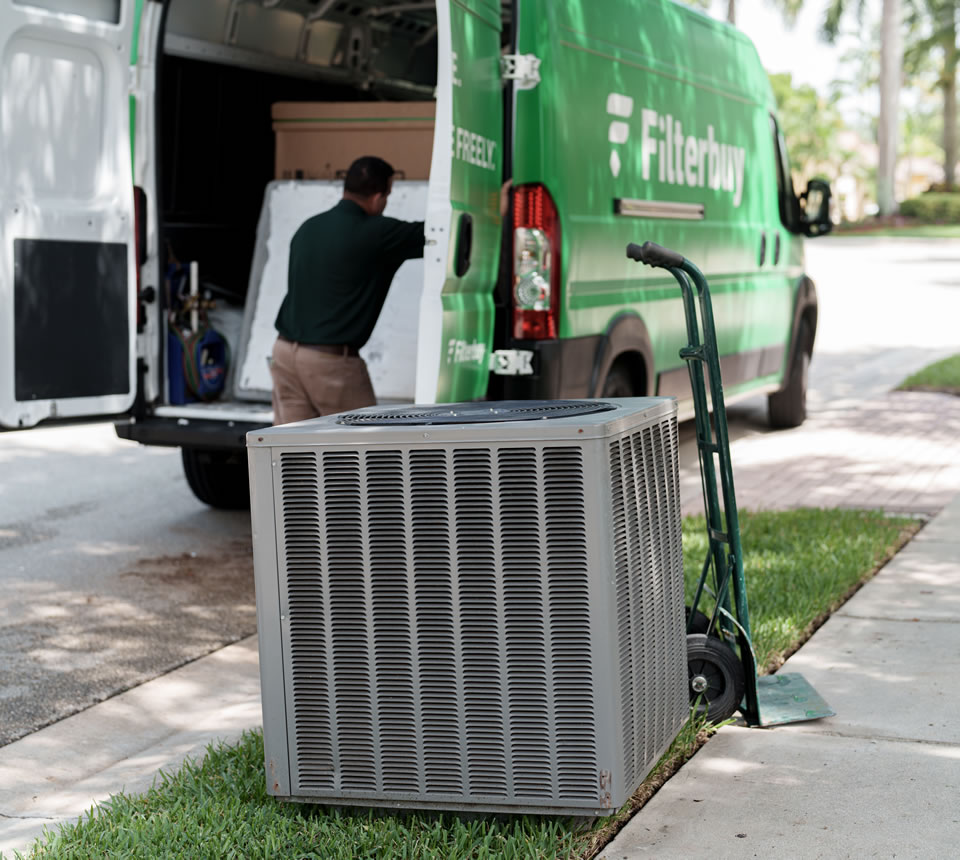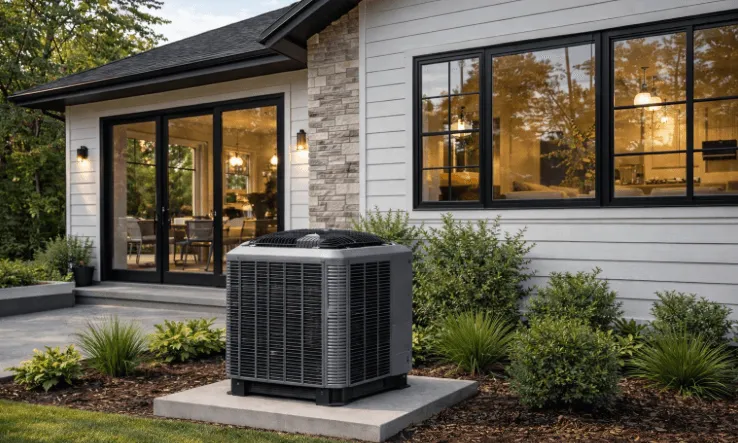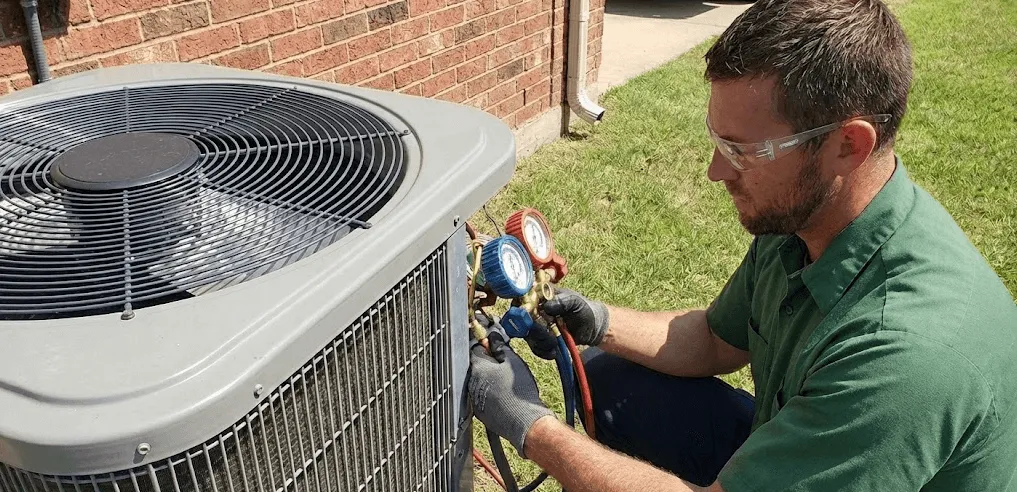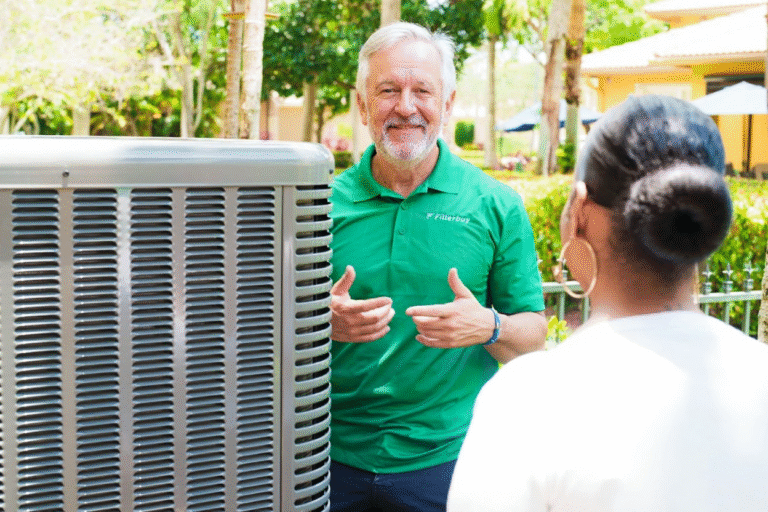The cost of a new AC can vary a lot. Many homeowners are unsure what’s realistic. The price is not just the unit itself. Climate, local labor, home insulation, and rebates all affect the total.
This guide shares real prices, savings tips, and hidden costs that are easy to miss. If you’re upgrading for efficiency or replacing a failing unit, this will help you make a smart choice for your air quality.
Top Takeaways
- AC replacement = long-term investment. The right system and installer impact savings and comfort.
- Higher efficiency = lower bills. A high SEER AC can cut energy use by 20%+.
- Rebates and incentives = big savings. Check federal, state and utility programs before buying.
- Beware of low quotes. Cheap installs may skip steps like duct sealing, costing more later.
- Plan for the best deal. Installing before summer avoids delays and higher prices.
Real Homeowners Share Their AC Experiences
Replacing an AC is about more than the upfront price. Installation quality, system efficiency, and rebates can make a big difference. Here are some examples of homeowners who worked with Filterbuy HVAC Solutions:
Austin, Texas
- Old Unit: 15 years old, 3.5-ton AC
- New Unit: 4-ton high-efficiency system
- Result: Saved $2,000+ after rebates, better comfort, lower energy bills
Phoenix, Arizona
- Old Unit: Builder-grade 3-ton AC
- Challenge: Low quote excluded duct sealing
- Solution: Proper installation with Filterbuy HVAC Solutions
- Result: Avoid energy loss to save on your utility bills. This saves you from costly fixes.
Charlotte, North Carolina
- Home: Older home, no ductwork
- New System: Ductless mini-split
- Result: Cut cooling bills by 35% and provided reliable comfort
These stories show why the right install and rebates make such a difference. Mini-splits fit homes without ducts. High-efficiency systems give the best return in larger homes.
Why Upgrading Your AC Pays Off: Data-Backed Insights
Think of your AC like an investment:
- Energy Costs: Heating and cooling take up half of your home’s energy. An AC over 10 years old likely costs more to run. (U.S. DOE)
- Savings from Efficiency: A modern high-efficiency AC can use 20% less energy. Homeowners often recover the cost in a few years. In hot climates, it can significantly cut summer bills. (U.S. DOE)
- Extra Savings with Rebates: Most homes using electric, fuel oil, or propane save $300–$650 a year with a high-efficiency heat pump. Rebates and credits offer big savings at the start, cutting costs by thousands. (NREL)
Bottom Line: Old ACs cost more to run. A new system saves money and rebates make the upgrade easier.
Next Steps: Get the Best AC for Your Home
- Get Multiple Quotes: Ask at least three licensed pros. Compare efficiency, warranty and install details. Not just the price.
- Check Rebates & Offers: Visit sites like Filterbuy HVAC Solutions. Ask about manufacturer offers.
- Pick the Right System: Choose SEER 16 or higher or an ENERGY STAR unit. A smart thermostat helps manage energy use better.
- Plan Installation & Maintenance: Book before summer. Ask about maintenance plans to prolong HVAC life.
- Make Smart Choices: Read customer reviews, confirm warranties. Consider financing if you need it.
Make a Smart AC Investment with Filterbuy HVAC Solutions
Upgrading your AC is a big decision. To get the most value:
- Pick a high efficiency system with strong warranties.
- Compare quotes carefully. Not just the cheapest one.
- Install before peak summer to avoid delays.
- Get a maintenance plan to keep your AC running longer.
- Work with Filterbuy HVAC Solutions for expert installation, rebate guidance and energy efficient upgrades.
- Take advantage of virtual consultations, free quotes, flexible scheduling and financing.
You might be wondering about the cost of a new AC unit for your home or the price of an AC replacement. Filterbuy HVAC Solutions helps you make a smart choice that brings comfort, savings and peace of mind.
Frequently Asked Questions
What does it usually cost to replace an AC unit?
Replacing an AC unit costs $2,500 to $7,500. This price includes the unit and installation labor. And also any necessary changes to your current system. Local labor rates and rebates also change the final price.
How much is a new air conditioner for a 2000 sq ft home?
A new AC for a 2000 sq ft home costs $3,000 to $5,000. It depends on the brand. Also on efficiency and installation details. Your home’s cooling needs and regional costs also play a role.
Is replacing an AC unit worth the money?
Yes. Older or inefficient systems use more energy. They also break down more often. A new unit lowers energy bills and reduces repair costs. It also comes with a warranty for extra peace of mind.
Should I replace my 20-year-old AC?
You should consider it. Most AC units last 15 to 20 years. After that they become less reliable and less efficient. A new system will cool better and help lower your utility bills.
Can I replace only the outside AC unit?
You can but it’s not always the best choice. If the inside and outside units don’t match, your system loses efficiency. It might also wear out faster. Replacing both parts is the smarter option.
Does homeowners’ insurance cover AC replacement?
Homeowners insurance does not cover AC replacement. This is because it is considered routine maintenance. But your policy helps if your AC is damaged by fire, vandalism or a similar covered event. Always check with your provider to be sure.
How much is a new AC unit overall?
The cost depends on the system’s size, efficiency and brand. The average cost for a new AC unit is between $2,500 and $7,500. This price includes HVAC installation. It is best to get quotes from local licensed professionals to compare prices for your specific home.







